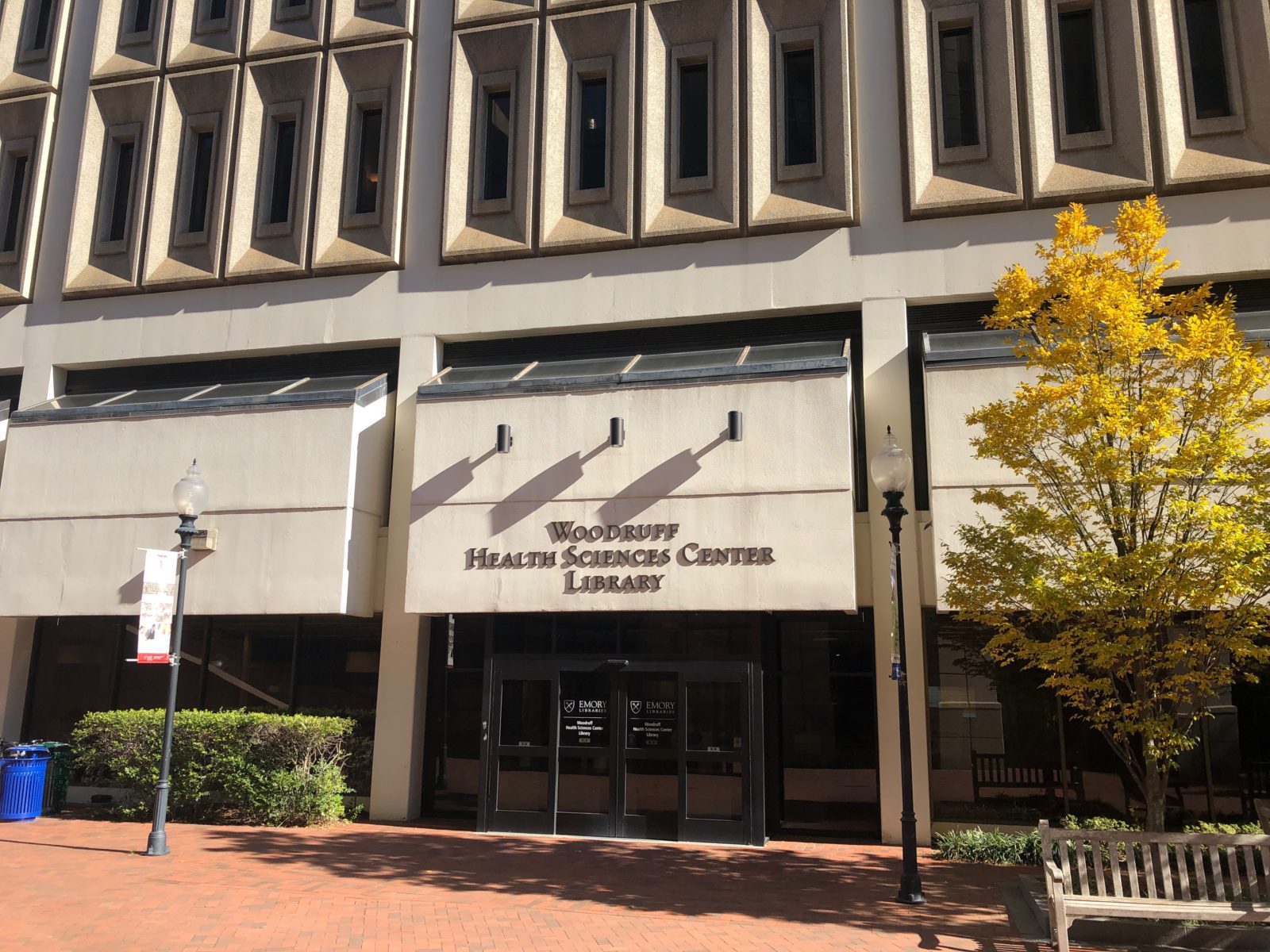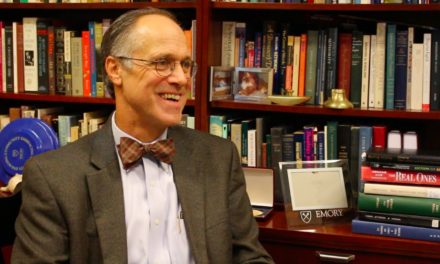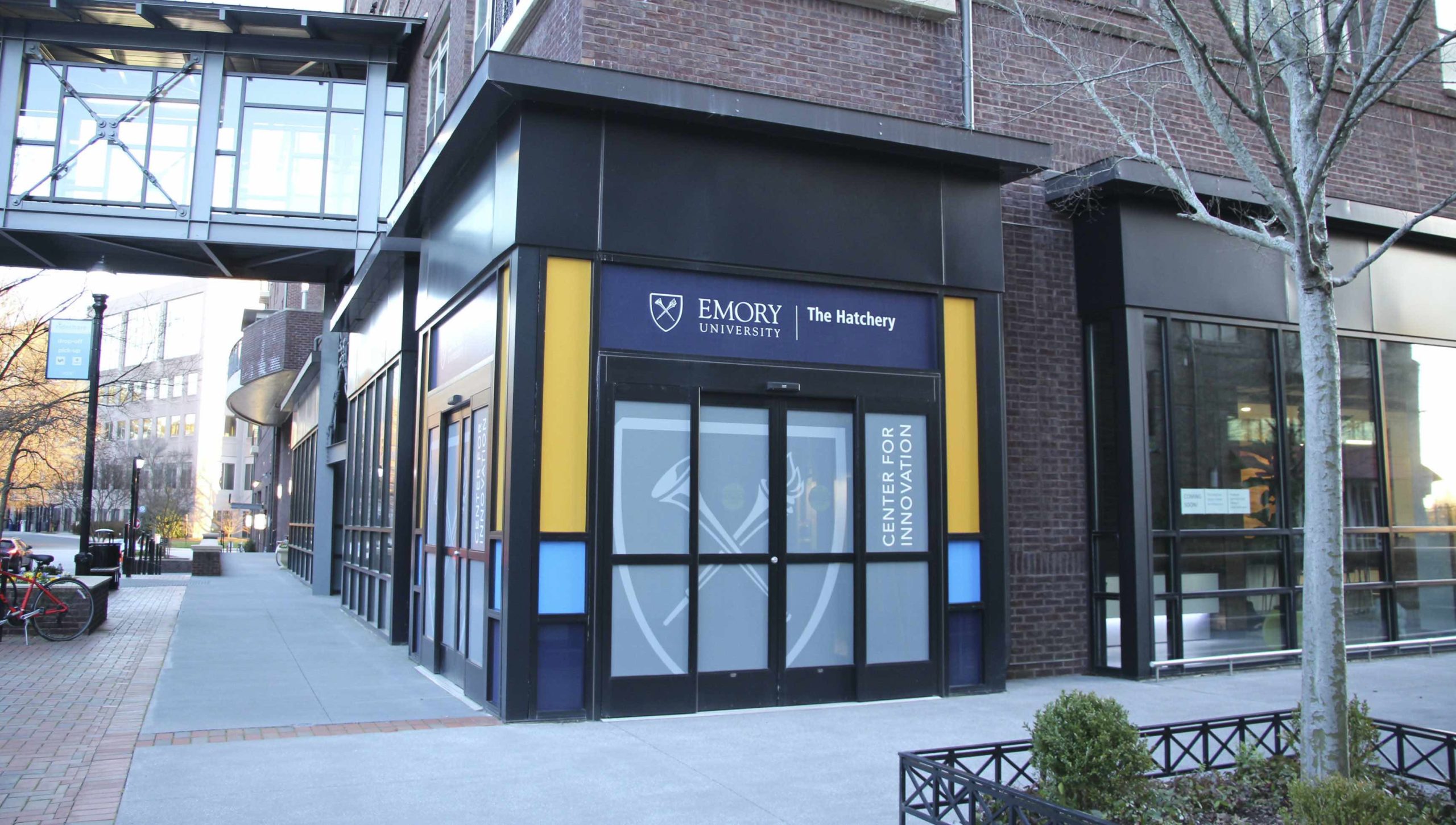
Graduate student leaders would like to keep the Woodruff Health Sciences Center Library open 24-hours./Richard Chess, Executive Editor
Graduate students are asking to expand the Woodruff Health Sciences Center Library (WHSCL) hours to 24-hours and limit access to undergraduate students during finals.
The University Senate unanimously supported opening the WHSCL 24/7 after Samuel Maidman (20M), president of the Emory University Medical Student Senate (MSS), presented the proposal to the body on Tuesday. However, the University Senate rejected another motion to endorse a proposal that would restrict access to the library for undergraduate students during scheduled finals periods.
Graduate Student Government Association (GSGA) endorsed both ideas at their Monday meeting.
Maidman explained to the University Senate that MSS found issues with WHSCL’s opening and closing times, especially during undergraduate recess periods.
“The hours of [the Woodruff Health Science Library] do not sufficiently match up with the schedule of the average medical student, which is a huge issue,” Maidman said. “Our schedules are very variable.”
The library currently is open 7:30 a.m. to midnight Monday through Thursday and has more limited hours Friday through Sunday.
Maidman said that although first-year medical students have a consistent schedule, older Medical School students attend clinical practices off-campus at night, which prevents them from studying during normal hours. He noted that the University schedule and the Medical School schedules are not aligned, which contributes to inconvenient library hours for medical students. A memo by the MSS noted that the majority of studying for the United States Medical Licensing Exam occurs during December and January while undergraduate students are on winter break.
“The library is actually closed or on very reduced hours during the most crucial study time in a medical student’s career,” Maidman said.
University Librarian Yolanda Cooper said she has considered parts of Maidman’s proposals but was cautious of cost and safety concerns related to 24/7 swipe access. After the proposal was approved by the Senate, however, Cooper said she would begin working with the Health Sciences Library leadership in the Spring about possible steps toward implementation.
“I’ll meet with the Director of the Woodruff Health Sciences Center Library, Sandra Franklin, and review the proposal,” Cooper wrote in a Nov. 27 email to the Wheel. “We will then do some investigation on cost and availability of staffing as well as take into consideration any security issues.”
A survey of the 154 medical students found that 87 percent of respondents wanted “24/7 card swipe access to WHSCL so they could study at their preferred spot at their convenience,” according to the MSS memo.
Maidman added that medical students are concerned about the amount of study space available, especially when competing for space with undergraduate students in the library.
“There is not enough space for the graduate students, particularly when undergraduates are in their finals,” Maidman said. “From personal experience … it’s very difficult to find [a spot in the WHSCL].”
He noted that the Hugh F. MacMillan Law Library restricts access to only graduate students during exam hours each semester.
“Graduate school-affiliated libraries being closed to undergraduates is by no means a novel idea,” Maidman said. “It is a widespread principle that is … applied to … countless undergraduate institutions.”
Nichole Powell, associate professor of chemistry at Oxford College, said she was concerned about the proposal to restrict access for undergraduate students, noting that the competition for study space in the WHSCL could be a symptom of a larger issue of inadequate study space at the University.
SGA Executive Vice President John Priddy (19C) said he has consistently studied in the WHSCL during his time at Emory, noting that the space is one of the only libraries that is quiet throughout the building.
“I do the most of my studying [at the WHSCL] during finals week, but at the same time I’m not a medical student,” Priddy said. “I can see both sides to this, but I do know why a lot of undergraduates use that space.”
Maidman reiterated that his primary goal is to establish a more accommodating library schedule for medical students and that undergraduate restrictions are less important.
“Myself and the medical school are firm believers in the One Emory policy of being a really welcoming and warm community,” Maidman said. “By no means are we trying to diminish those principles; we are just trying to ensure that there is a table for us to sit at when we are studying for the most important test of our lives.”
Update (12/2/18 at 10:33 a.m.): The article was updated to include current library operating hours.
Correction (11/28/18 at 1:15 p.m.): A previous version of this article incorrectly attributed the last direct quote to Cooper. The article has been updated to correctly attribute Maidman.
Former Editor-in-Chief | Isaiah Poritz (he/him) (21C) is from Salt Lake City, Utah, and majored in political science.




